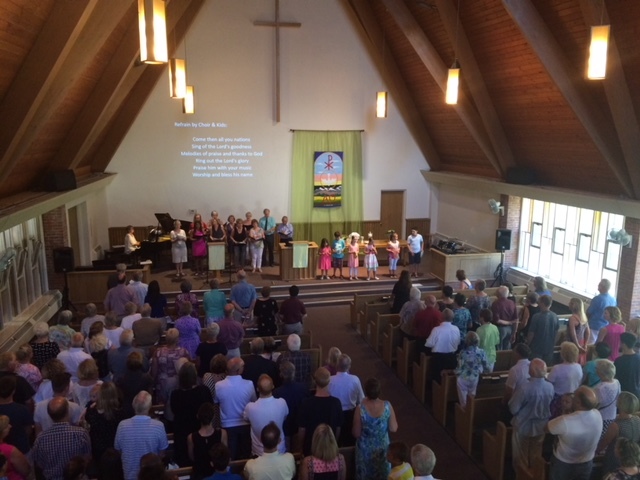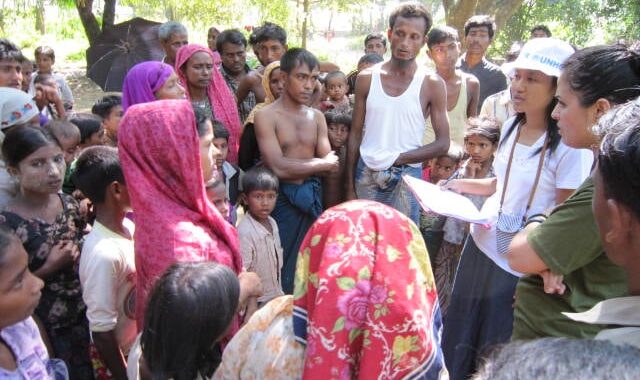Religion and Gender: Faith Communities

Religion has played a significant role in shaping societal norms and values, including those related to gender roles and expectations. Throughout history, women’s participation and roles in religious communities have varied widely, reflecting the diverse interpretations and practices within different faith traditions. In this blog post, we will delve into the complex relationship between religion and gender, exploring the historical context, current challenges, and the evolving role of women in faith communities.
Historical Context: The role of women in religious contexts has been influenced by cultural, social, and historical factors. In some traditions, women have held prominent leadership roles and played pivotal roles in religious narratives. For example, in Christianity, women such as Mary Magdalene and Mother Teresa have had a profound impact on religious teachings and practices. However, in other traditions, patriarchal structures and interpretations of religious texts have limited women’s participation and leadership opportunities. Understanding the historical context is crucial for appreciating the progress that has been made and the work that still needs to be done to promote gender equality within religious communities.
Challenges and Barriers: Despite the progress made in many societies, women still face challenges and barriers within religious communities. Traditional gender roles and interpretations of religious texts may perpetuate discriminatory practices, limiting women’s access to leadership roles, education, and decision-making processes. Gender-based violence, such as domestic abuse or harmful cultural practices, can also intersect with religious beliefs and exacerbate women’s vulnerability. It is essential to acknowledge and address these challenges to create inclusive spaces where women can fully participate and contribute to religious life.
Women’s Empowerment and Activism: Despite the challenges, many women within religious communities have been at the forefront of advocating for gender equality, challenging oppressive norms, and promoting social justice. Women’s empowerment movements within various faith traditions have sought to reinterpret religious texts, challenge gender stereotypes, and create opportunities for women’s leadership and spiritual expression. These movements highlight the diversity of religious interpretations and the potential for progressive change within religious contexts. Women’s activism within religious communities has paved the way for greater gender equality, inspiring future generations to question and challenge gender-based discrimination.

The Evolving Role of Women: Over time, the role of women within religious communities has evolved, reflecting changing social dynamics and interpretations of religious texts. Many faith traditions have seen a gradual shift toward greater inclusion and recognition of women’s contributions. Women are increasingly assuming leadership roles, participating in religious rituals, and engaging in theological scholarship. Interfaith dialogues and collaborations have also emerged as platforms for women’s voices to be heard and for gender equality to be promoted across religious boundaries. Recognizing the diverse ways in which women contribute to religious life is crucial for fostering inclusivity, equity, and spiritual growth within faith communities.
Intersectionality and Inclusivity: It is important to recognize that the experiences of women in religious communities are shaped not only by gender but also by other intersecting identities, such as race, class, sexuality, and ability. Intersectionality acknowledges that individuals experience multiple forms of oppression and privilege simultaneously. Taking an intersectional approach to addressing gender inequality within religious contexts allows for a more comprehensive understanding of the challenges faced by marginalized women and the need for inclusive solutions that consider the complexity of their identities.
Religious Feminism: One of the significant movements within the intersection of religion and gender is religious feminism. Religious feminists seek to reconcile their religious beliefs with a feminist framework, challenging patriarchal interpretations and practices within their faith communities. They aim to create spaces where women can fully exercise their agency, challenge gender-based discrimination, and contribute to shaping religious teachings and practices. Religious feminism recognizes that women’s experiences and perspectives are vital for a comprehensive understanding of religious texts and traditions, advocating for gender equality within the context of religious beliefs and practices.
The Power of Representation: Representation matters, and seeing women in visible and influential roles within religious communities can be transformative. When women hold leadership positions, serve as religious scholars, or participate in decision-making processes, it sends a powerful message of inclusion and breaks down gender stereotypes. It also provides role models for young girls and women, inspiring them to pursue their spiritual journeys and aspire to leadership within their faith communities. Promoting and supporting the representation of women in religious contexts is crucial for challenging traditional gender norms and fostering gender equality.
The Need for Dialogue and Collaboration: Open and respectful dialogue is essential for addressing the complexities of gender within religious communities. Engaging in conversations that explore the intersections of religion and gender can foster understanding, empathy, and collaboration. It provides an opportunity to challenge harmful beliefs and practices while honoring the diversity of religious experiences. Interfaith dialogue is also vital, as it allows for cross-cultural conversations and the exchange of ideas about gender roles and inclusivity. By engaging in dialogue and collaboration, we can work towards building more inclusive faith communities that celebrate and empower women. Read this article from the Bible Keeper blog for more info on religion.
In conclusion, the role of women in faith communities is a multifaceted and evolving topic. While progress has been made in promoting gender equality within religious contexts, challenges and barriers persist. By examining the historical context, acknowledging the challenges, uplifting women’s empowerment and activism, recognizing the evolving roles of women, and taking an intersectional approach, we can work towards creating more inclusive and equitable faith communities. Embracing diverse perspectives, challenging discriminatory practices, and promoting the full participation of women will contribute to a more just and inclusive society where the contributions of all individuals, regardless of gender, are valued and celebrated within their religious beliefs and practices.
By embracing religious feminism, amplifying women’s voices and representation, and engaging in dialogue and collaboration, we can work towards creating more inclusive and equitable faith communities. It is through these efforts that we can fully harness the potential of women’s spiritual contributions and create spaces where all individuals are able to practice their faith authentically and experience a sense of belonging.


 The Psychology of Branding
The Psychology of Branding  Nosboss Cream Chargers for Melbourne Customers
Nosboss Cream Chargers for Melbourne Customers  How to Use Your Air Conditioner
How to Use Your Air Conditioner  Yemeni Language in Preserving Cultural Heritage
Yemeni Language in Preserving Cultural Heritage  Running Seasonal Advertising Campaigns
Running Seasonal Advertising Campaigns  Omega-3 for Reducing the Risk of Stroke
Omega-3 for Reducing the Risk of Stroke